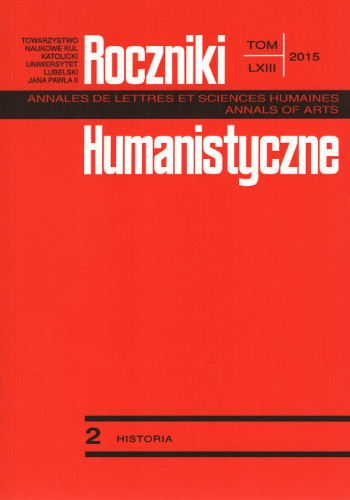The Enlightenment Idea of Responsibility for Truth and Morality in Politics in the Polish Political Thought
The Enlightenment Idea of Responsibility for Truth and Morality in Politics in the Polish Political Thought
Author(s): Arkadiusz M. StasiakSubject(s): 18th Century
Published by: Towarzystwo Naukowe KUL & Katolicki Uniwersytet Lubelski Jana Pawła II
Keywords: Enlightenment political theory;values of truth and morality in politics;Polish political theory of the second half of the 18th century;
Summary/Abstract: In the 18th century the category of conscience became one of the rudimentary cultural values in Europe. For this reason, the relationship between politics and moral values became vital. However the earlier, modern European political theory was in opposition to the idea of governing on the basis of conscience, which is why the categories of truth and morality from the pre-Enlightenment period did not constitute any significant political values. In the Polish political thought of the second half of the 18th century, there was the conviction that the politics cannot be separated from morality. Nonetheless the unwillingness of the king to interfere with the issues of the conscience, based on the values of the noble freedom and equality resulted in the fact that the Polish authors of the texts within the scope of the political theory had not made the king responsible for the truth and morality.
Journal: Roczniki Humanistyczne
- Issue Year: 63/2015
- Issue No: 02
- Page Range: 119-136
- Page Count: 18
- Language: English

